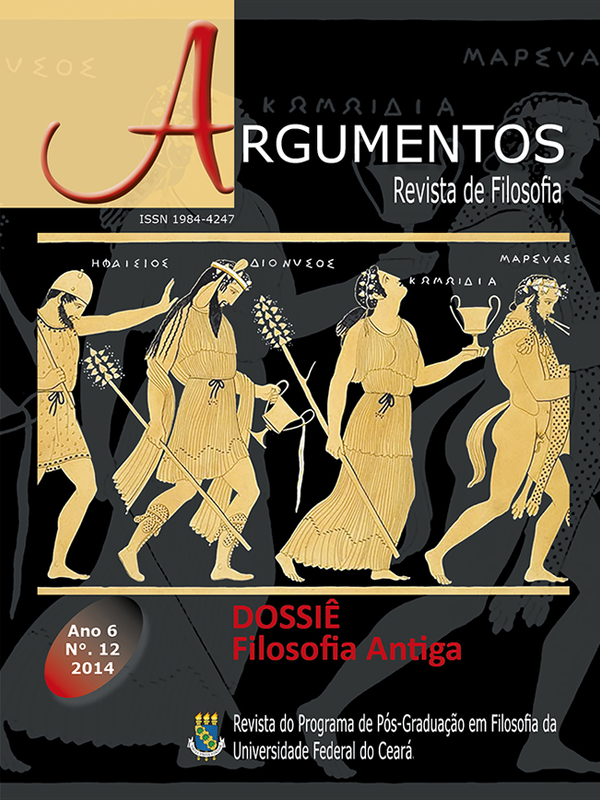Aristophanes and Plato: the poet in the polis
Keywords:
Aristophanes. Plato. Mímesis. Eros.Abstract
Our research has as main objective to identify in the comedies of Aristophanes the figure of the poet and his work in the city as educator of the people, establishing a dialogue between Plato’s criticism of poetry and disorders of the pólis and the institution of righteous speech by the comic poet in the aristophanic comedies. This article will deal more specifically the relationship between mimesis and Eros in the two authors. Plato uses Aristophanes in the Symposium as a comedy writer to make clear the way for Socrates, and the poet, as in comedies, often combines the ridiculous with the materialism for restorative function to return the distortions of political life to nature. In Tesmoforiantes, we witnessed a true withdrawal of Theatre Mask, a critique of the foundations of serious representation, the tragic, by to use men actors in female roles, with the ridiculous manifest by the travesty on the stage of Euripides’ relative in an old woman.Downloads
Published
Issue
Section
License
Argumentos magazine is licensed under an International Creative Commons Attribution License.
The Magazine uses CC BY inclusion
1) The authors retain the copyright granted to the magazine or the right to initial publication, with the work regularly licensed under the Creative Commons Attribution, which allows the sharing of the work with acknowledgment of authorship and initial publication in this magazine.
2) The authors are authorized to contract additional applicable contracts, for non-exclusive distribution of the version of the work published in this journal (for example, publication in the institutional repository or as a chapter of the book), recognition of authorship and initial publication in this journal.
3) Authors are authorized and encourage to publish and distribute their work online (for example, in institutional repositories or on their personal pages) at any time before or during the editorial process, as they can generate productive changes, as well as increase the impact and reference of published work.




.jpg)










._._3.png)
1.jpg)
._._._.png)
